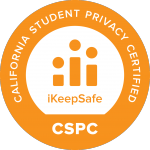Last year, we shared the stories of 16 historic black inventors and scientists to inspire the kids in your classroom. These are people who are not always recognized for their efforts, yet their influence shapes the industries they worked in to this day.
This made us wonder, who are the modern day inventors and innovators inspiring young minds? Who is 2019’s George Washington Carver? Who is the next Dr. Mae Jemison? We started pairing the great minds of pioneers then and now. Check out these 10 up-and-comers who your students might read about in the history books someday.
Thomas L. Jennings and Joseph S. Francisco
Thomas L. Jennings was the first African American to receive a patent, BlackPast.org reports. The patent was awarded in 1821 for a process called dry-scouring, the precursor to dry cleaning.
Just because Jennings had the first patent as an African American doesn’t mean he was the first black inventor. It’s just that Jennings was born free and was able to patent his invention. Inventions by slaves were considered property of the people who “owned” them. Furthermore, the law stated that since slaves were not citizens, they couldn’t own property like inventions. The rights for slaves to hold patents was granted in 1861.
As a fellow chemist, Joseph S. Francisco is following in the footsteps of Thomas L. Jennings. Francisco is the second African American to be elected president of the American Chemical Society and is the former president of the National Organization for the Professional Advancement of Black Chemists and Chemical Engineers. He has published more than 400 journal articles and co-authored the textbook “Chemical Kinetics and Dynamics.” He was appointment by President Barack Obama to the distinguished National Medal of Science Committee.
“When I look at the achievements of George Washington Carver and other great African American chemists, they are models of achievement and success,” he says. “When you take a closer look at their achievements, you understand something about the meaning of opportunity; about hard work, sacrifice, determination; and about the struggle to achieve. You also learn about the importance of their contributions to making the lives of others better.”
Alexander Miles and Daymond John
Alexander Miles was a successful businessman who patented an invention for an electric elevator with automatic closing doors in 1887. “The problem with elevators at that time was that the doors of the elevator and the shaft had to be opened and closed manually,” Mary Bellis, who was known for her writing on inventors, said. “People would forget to close the shaft door. As a result, there were accidents with people falling down the elevator shaft.” Miles was inspired to work on this invention when he noticed the door was open when he was riding an elevator.
If anyone understands the hustle of growing a business and then turning around and using wealth and influence to help others, it is Daymond John. John launched his clothing line, Fubu, in 1992. His road to success wasn’t easy. He had to close his business three times, but he learned from his mistakes and persevered. He even worked at Red Lobster during the company’s first six years, Lydia Belanger reports at Entrepreneur. Today, John can be found on Shark Tank helping up-and-coming entrepreneurs improve their ideas to follow in his footsteps. He is a multi-millionaire worth $250 million.

Thomas Stewart and Johanan Dujon
Sometimes your most complex tools and scientific achievements are overshadowed by simpler ideas that change the world. This is the case of Thomas Stewart, who worked to improve the traffic signal and a machine that can easily bend and shape metal. However, he is best known as the man who invented the mop. Instead of scrubbing on our hands and knees, he created a mop in the 1880s that could clamp down on the fibers and wring them out, so whoever was cleaning didn’t have to manually wring out the mop on their own.
Johanan Dujon has a similar story. He is the founder of Algas Organics, the Caribbean’s first indigenous agriculture biotechnology company. Dujon founded the company in 2014 as a solution to the tons of invasive sargassum seaweed that wash ashore in St. Lucia. This seaweed is a threat to wildlife, to the fishermen who rely on a good catch, and to the tourism industry. His company has turned more than 400 tons of the seaweed into world class agricultural products that are used across the Caribbean, United States, and Canada.
Dujon is only 25 and he built his company while he worked as a PE teacher. He would teach during the day and then work on his biotech company until midnight.
“I am a 24-year-old, who owns an agriculture biotech company which manufactures products that outperform leading international billion-dollar brands,” he told the Huffington Post in 2017. “People don’t believe it, and sometimes I don’t either. The way I overcame this is being professional and knowing everything I can about my industry. People trust you when you know what you are talking about. Especially when you’re very young. Integrity and a good reputation which precedes you is key.”
Sarah Boone and Dr. Patricia Bath
Sarah Boone was a dressmaker who improved the ironing board so you could press sleeves without leaving creases. “Before Boone’s ironing board, ironing was done with irons heated on the stove or fire, using a table that was covered with a thick cloth,” Mildred Europa Taylor writes at Face2Face Africa. The patent was approved in 1892 and modern ironing boards were adapted based on her invention.
Boone was an early female inventor who faced barriers because of her race and her gender. Even through the 20th century, many female and black scientists weren’t taken seriously and had to fight twice as hard for their achievements to be be recognized. Dr. Patricia Bath is one such person. She was recognized by the National Girls Collaborative Project for her role in the invention and development of laserphaco cataract surgery. She continues to advocate for the blind and disabled through the American Institute for the Prevention of Blindness, which she co-founded. Dr. Bath uses her position to be a voice for those who are underrepresented in the field of STEAM.
Lewis Howard Latimer and Angela Archon
Lewis Howard Latimer spent his career trying to solve common problems through inventions that make people more comfortable. When he was 15, Latimer falsified his birth certificate so he could join the Union Navy during the Civil War and then moved to Boston after receiving an honorable discharge. He started working in a drafting firm and one of his first assignments was on one of Alexander Graham Bell’s telephone patents. The Engineering and Technology History Wiki, developed through the United Engineering Foundation, reports that over the course of his career, Latimer developed a water closet for railroad cars and an improved electric lamp.
Like Latimer, Angela Archon is also a technology pioneer and business leader changing the face of American enterprise. Now retired, Archon was Vice President of Transformation and Chief Operating Officer for the Watson Health business unit at IBM. Her main focus was improving and expediting IBM’s tools so they could hit the market faster and overtake the competition.
While Latimer helped draft inventions and make them possible, Archon lowered barriers at IBM to help developers create the next great products. She was successful: In 2017, IBM had the most patents granted of any company in the United States at 9,043 — up from 8,090 in 2016.

Jan Matzeliger and Donna Auguste
Jan Matzeliger was born in Suriname and settled in the United States in 1873. According to Biography.com, Matzeliger trained as a shoemaker and developed a “shoe lasting machine” which made shoes more affordable and available. A “last” in the world of shoemaking refers to molds of a customer’s feet. This process was originally done by hand, which was complex and time consuming. Matzeliger’s machine could create 700 pairs of shoes a day, 10 times what the average person could make by hand.
In the same way that Matzeliger changed how shoes were made forever, Donna Auguste played an important role in modern technology. She led the software engineering team that developed the Newton personal digital assistant for Apple in the early 1990s. Once she left Apple, Auguste founded Freshwater Software, which develops ebusiness monitoring products. She sold the company for $147 million in 2001. In that same year, Auguste won the Golden Torch Award for Outstanding Women in Technology.
Now Auguste runs the Leave a Little Room Foundation, which provides housing, electricity, and vaccinations to underprivileged communities. Both small children in poor neighborhoods and aspiring business leaders use the products and services created by Auguste, showing how she truly changed the world.
Garrett Morgan and Moziah Bridges
Garrett Morgan had only a fifth grade education when he left home at 14 and moved to Cleveland. A natural tinkerer, he taught himself the ins-and-outs of sewing machines so he could earn a living repairing them, explains Nancy Marine at MeggaMag. In the early 1900s as he learned more about the mechanics of sewing machines, he started inventing gadgets to make them perform better. Then he expanded his work and is credited for inventing the gas mask and the stoplight.
Morgan lived by the motto, “If a man puts something to block your way, the first time you go around it, the second time you go over it, and the third time you go through it.” He had many great achievements but received little fame or acknowledgement because of his race.
If there’s anyone following in the footsteps of Garrett Morgan, it is Moziah Bridges, president and founder of Mo’s Bows, who will graduate high school in 2020. A few years back, Bridges presented his bow-tie company idea as a 12-year-old on Shark Tank. Since then, his business has taken off. He recently signed a seven-figure deal to supply bow ties to the NBA. As of 2014, Bridges business was worth $150,000, earning him features on in O Magazine and Vogue. With his new partnership with the NBA, this net worth is sure to grow. As Bridges says, “I’m living proof that you can be anything you want – at any age.”
If this child can have an empire by the time he is able to vote, imagine what he will accomplish by the time he is 50. Move over, Daymond John — Moziah Bridges is making a name for himself.
David Nelson Crosthwait Jr. and Richard Constable
David Nelson Crosthwait Jr. holds more than 39 US patents and 80 foreign patents for his work in heating, ventilation, and air conditioning. According to Uchenna Edeh at Kentakepage, Crosthwait Jr. designed the heating systems for Radio City Music Hall and Rockefeller Center in New York City. Throughout the mid-twentieth century, he also developed manuals with HVAC standards and codes to make the systems more effective and safer.
Radio City Music Hall is one of the locations cared for by the Madison Square Garden (MSG) Company, which offers some of the best sports and entertainment in the country. MSG is recognized internationally and serves as a leader and influencer as a brand. Richard Constable plays a key role in that. The former Assistant U.S. Attorney is now the executive vice president, Global Head of Government Relations and Public Affairs for Madison Square Garden Company. His job is to work locally and federally (and sometimes globally) to enact legislation to protect the venues, teams and performers. His innovative efforts include creating projects and programs that are meaningful to each venue’s local community.
While Crosthwait Jr. brought cool air to Radio City Music Hall, Constable often has to deal with the hot air of politicians to protect the venue for future generations.

Marie Van Brittan Brown and Rosalind Brewer
Do you have a Ring security system in your home? If so, you can thank Marie Van Brittan Brown for her invention, Stephanie Buck writes at Medium. Van Brittan Brown lived in an unsafe neighborhood in Queens where the police were unreliable. Her husband worked long hours and she didn’t feel safe in her home. So she took action. In 1966, she developed a closed-circuit security system that monitored visitors through a video camera and projected the images on TVs around the house. From any room, the user could see who was trying to get in. The homeowner could also talk to whoever was at the door through a set of two-way microphones.
Van Brittan Brown developed her CCTV system to solve problems within her home and make an impact in the lives of other women across the country. Similarly, Rosalind Brewer works to solve problems and lead companies to better times, inspiring black female future executives across the country.
Brewer is the first African-American and the first female COO of Starbucks. She accepted the position in 2017 after serving as CEO of Sam’s Club for six years. Other leaders at Sam’s Club lauded Brewer’s innovation ability and passion to move projects forward. She grew the brand and made it a serious competitor against Costco. Along with working as Starbucks’ chief operating officer and group president, Brewer is on the Starbucks board of directors and also chairs the board of trustees at Spelman College, where she went to school.
Dr. Joseph N. Jackson and Torrence Boone
If you enjoy watching television (and blocking your kids from watching inappropriate content), then you have Dr. Joseph N. Jackson to thank. The Black Detour team reports that Dr. Jackson invented the programmable television controller and was responsible for the development of the V-Chip, which blocks adult content. He holds six patents in the field of telecommunications developed in the 1970s and 80s and has several other copyrights and trademarks related to his ideas and creations.
Dr. Jackson pioneered many of the tools we use to consume media today, and Torrence Boone is also working to leave his mark through digital programming. Boone has been one of the biggest changemakers at Google, closing three multi-billion dollar global media and technology deals, the largest in the company’s history, during his first six months there.
Boone comes from humble beginnings. He grew up in the inner city of Baltimore and credits his education for giving him the tools to grow into the executive he is today. Boone continues to support educational enrichment in underserved communities, which in turn leads to better diversity rates in higher education.
Representation is essential for today’s students to have the confidence to succeed. Inventors and innovators from Thomas L. Jennings to Moziah Bridges are pioneers leading the way for anyone who has a great idea or business plan. Many faced racism or still face it today, which is why it is important to highlight them as heroes working to make it easier for the next generation of entrepreneurs.









